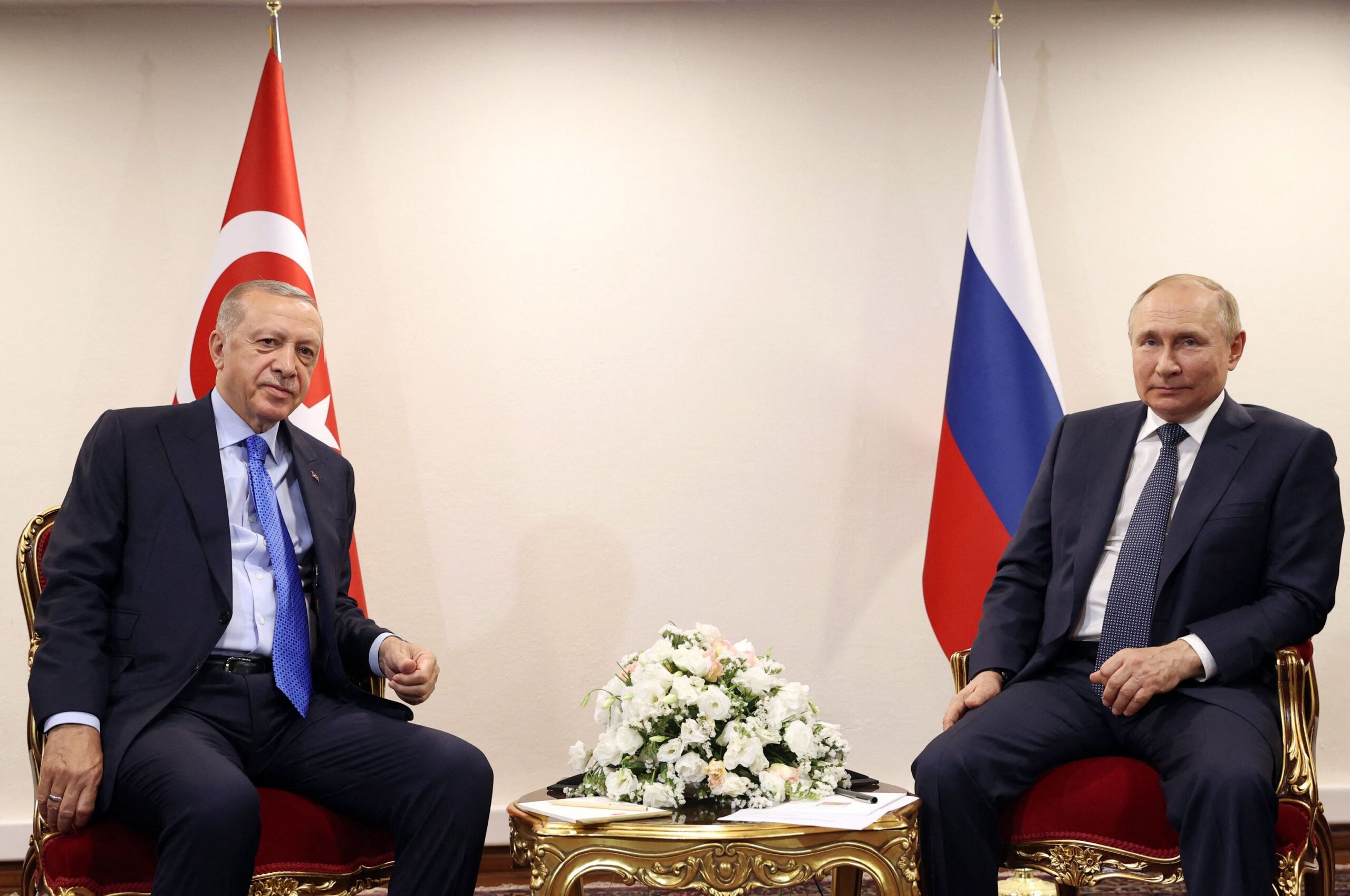The Islamic Republic does not want any more Turkish attacks on its protégé. It is not that Iran has been in favor to date, but this time it has been the Supreme Leader himself, Ali Khamenei, who has expressed his opinion directly to Turkish President Recep Tayyip Erdogan, in a face-to-face meeting prior to the tripartite summit on Syria scheduled for this Tuesday. The other word has Vladimir Putin, the second mainstay of the Syrian Government, who has landed in Tehran on a rare visit abroad in the midst of the war in Ukraine.
Although the excuse to meet has been the Astana table, the process that since 2017 has tried to find a political solution to the war in Syria, the bilateral meetings of all with all have been as important or more important than the tripartite meeting. Erdogan has tried to convince the Iranians and Russians of the benefits of his desired attack on northern Syria. Putin has described as “positive” the progress in the agreement with Erdogan to export Ukrainian grain. Raisi has offered both business and defense cooperation.
It was the first time since the start of the ‘special operation’ that the Russian leader has flown beyond the borders of the former Soviet Union. Putin has chosen the Iranian capital as the place to appear normal to the Russians, despite his poorly concealed limp and the limited mobility of his left arm; and presidents Ibrahim Raisi and Recep Tayyip Erdogan, the leaders with whom to rub shoulders to boast of friendships.
The underlying message has been clear: Russia does not lay all its eggs in the West. In times of sanctions, Moscow is able to look to the South and the East, to countries like China, the United Arab Emirates or Turkey, which are resisting US pressure to close the doors to business with the Russians. Or to Iran, from whose experience dealing with sanctions the Russians have begun to learn. After what was experienced with Washington’s unilateral withdrawal from the atomic pact in 2018, the attraction is mutual. Iran looks at Russia.
Last week, the White House denounced that Iran plans to sell “hundreds” of drones to Russia in the short term. Such a possibility raises serious questions among weapons experts given the present limitations of the Iranian military industry. But the complicit glances that Putin and the Iranian Supreme Guide Ali Khamenei gave each other during their meeting, who chooses the world leaders he receives in his office with a dropper, faithfully reflects this rapprochement.
Not in vain, before the meeting a Memorandum of Understanding was announced for 40,000 million dollars between the state oil company of Iran and the Russian Gazprom. But Hanna Notte, a researcher in Russia and the Middle East, is skeptical about the extent of this relationship. “Sure ties have deepened over the past decade, but Russia doesn’t play Iran alone. [Russian Foreign Minister] Lavrov has engaged extensively with the Arabs,” she recalls, in a Twitter comment.
Mistrust of Russia abounds in Iran, where there are reminders of the Kremlin’s good relations with Israel and the fact that whenever the Israelis have hit Iranian targets in Syria, Moscow has looked the other way. The Iranian hard line defends non-alignment so as not to depend on great powers, but, at the same time, advocates focusing on Asia to counteract Western sanctions. That makes Iran and Russia, two energy giants, competitors for the same market.
Similarly, the pragmatism resulting from sharing an area of influence and convenience have dragged Erdogan to Tehran. Khamenei has also received him, but with less cordiality than with Putin: “A military attack on Syria will harm the region and benefit the terrorists,” the Supreme Leader stated in front of the Turkish president. Both have spoken of “terrorists”, but the definition of one is different from that of the other: for Khamenei, they are the rebels that Turkey supports; for Erdogan, it is the Kurds that Iran does not fight.
With the usual Iranian ‘no’, the plans that Turkey has announced to attack two areas in northern Syria can be greatly complicated: Manbiy, a population with an Arab majority controlled by Kurdish militias, and Tel Rifat, where there are also displaced Kurds. In both places there is a Syrian, Russian and Iranian military presence. Faced with Russian reticence, Erdogan has not been daunted and has hinted that he would attack with or without his green light: “Manbiy and Tel Rifat are hotbeds of terror,” he said at the end of the day. “The time has come to clean up these ports where terrorist organizations have found refuge.”
Conforms to The Trust Project criteria
















